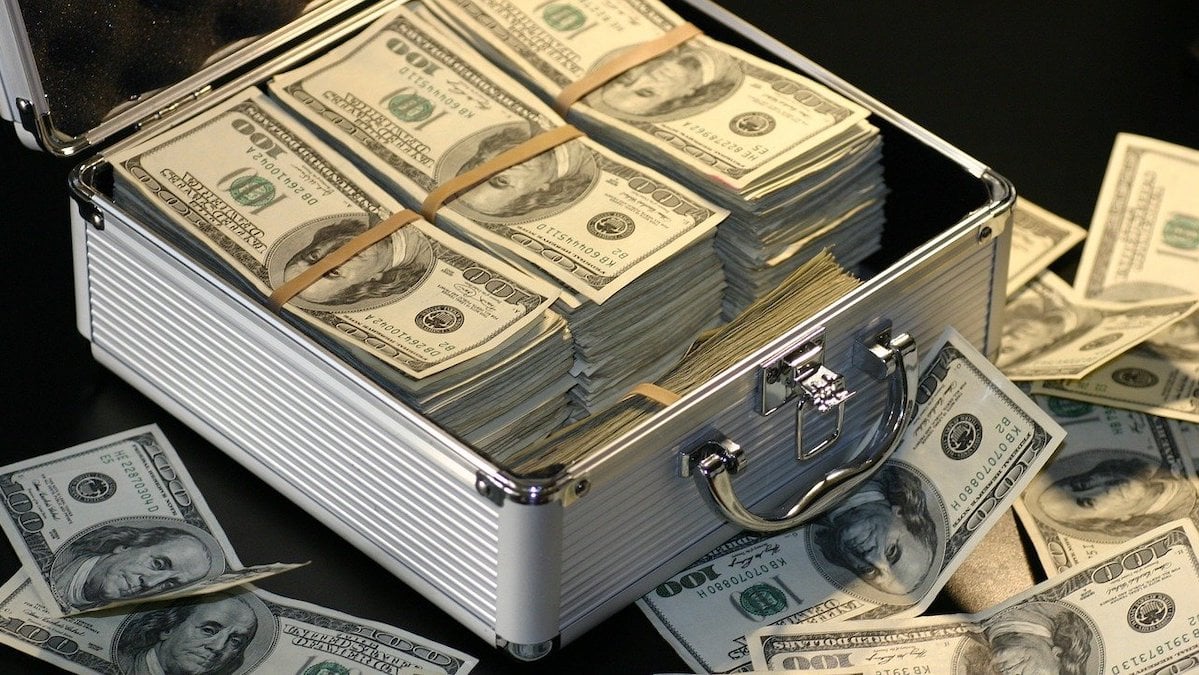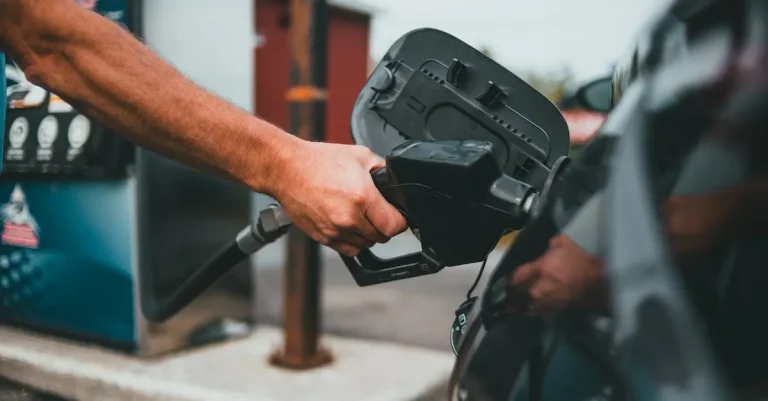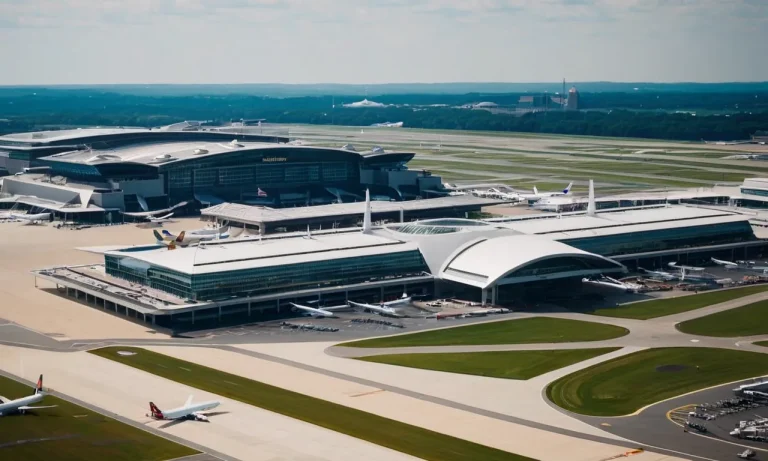Heading to the airport and wondering if you can bring cash in your pocket or wallet through the security checkpoint? Understandably, TSA rules around carry-on items can be confusing.
The quick answer is yes, you can carry cash in your pocket or wallet through airport security.
There are no restrictions on how much money you can bring as long as it’s declared when required. Read on for a full overview of TSA policies on traveling with cash.
TSA Rules for Flying with Cash
No limits on cash amounts for domestic U.S. flights
When it comes to carrying cash through airport security for domestic U.S. flights, there are no specific limits imposed by the Transportation Security Administration (TSA).
Travelers are free to carry any amount of cash in their pockets, wallets, or carry-on bags.
However, it is important to note that if the cash amount is unusually large, it may raise suspicion and could potentially be subject to further scrutiny by airport security personnel.
Requirements for declaring international currency
For international flights, the rules regarding carrying cash are slightly different.
This includes not only cash but also traveler’s checks, money orders, and negotiable instruments. Failing to declare amounts over $10,000 can result in significant penalties, including the seizure of the undeclared funds.
Taking cash through security screening
When passing through security screening, travelers are required to remove larger amounts of cash from their pockets or wallets and place them in a separate bin for X-ray screening.
This allows the security personnel to get a clear view of the cash and ensure it does not contain any prohibited items or substances.
It is also advisable to keep cash organized and easily accessible to facilitate the screening process and minimize delays.
It’s worth noting that although TSA does not have specific rules on carrying cash, it is always a good idea to check with your airline and the airport you are departing from for any additional guidelines or restrictions they may have in place.
Additionally, it’s recommended to keep a record of the serial numbers of any large bills you are carrying, as a precautionary measure in case of loss or theft.
Tips for Transporting Cash Securely
Best practices for pocket and wallet storage
When it comes to carrying cash through airport security, it’s important to prioritize security and convenience.
Here are some best practices for storing cash in your pocket or wallet:
- Avoid carrying large sums of cash. Consider using alternative payment methods like credit cards or traveler’s checks.
- If you must carry cash, distribute it among different pockets or compartments in your wallet to minimize the risk of losing everything in case of theft or misplacement.
- Consider using a money belt or a secure travel wallet that can be worn under your clothing for added security.
- Keep a small amount of cash easily accessible for immediate needs, such as taxi fare or a quick snack.
Options for in-flight storage and access
Once you’re on the plane, it’s important to have a plan for storing and accessing your cash during the flight:
- Keep your cash securely stored in a zipped pocket or compartment of your carry-on bag or personal item.
- Avoid placing your cash in an easily accessible location, such as the seat-back pocket in front of you.
- Consider using a travel pouch or a small lockable bag for additional security.
- If you’re carrying a significant amount of cash, you may want to consider using the in-flight safe provided by some airlines for storing valuable items.
What to do if cash becomes damaged
Accidents happen, and if your cash becomes damaged during your travels, here’s what you can do:
If your cash is torn or mutilated, you may still be able to use it as long as the serial numbers and important security features are intact.
However, some businesses or banks may refuse to accept damaged currency.
In such cases, you can contact the nearest branch of your country’s central bank or currency authority to inquire about the possibility of exchanging the damaged cash for new bills.
It’s always a good idea to keep your cash in good condition to avoid any inconveniences during your travels. To protect your cash from damage, consider using a waterproof or tear-resistant wallet or a money clip.
Remember, these tips are general guidelines and it’s important to check the specific regulations and recommendations of your destination country before traveling.
Stay informed and have a safe and hassle-free journey!

Alternatives to Carrying Cash
When traveling, it is important to consider alternatives to carrying large amounts of cash.
Not only does carrying excessive cash increase the risk of theft, but it can also lead to complications when going through airport security.
Fortunately, there are several convenient alternatives available to travelers.
Traveler’s checks
One popular option for travelers is the use of traveler’s checks. These checks are a safe and secure way to carry money while traveling.
They can be easily replaced if lost or stolen, providing peace of mind to travelers.
Additionally, traveler’s checks are widely accepted around the world, making them a convenient option for those who prefer not to carry cash.
It is advisable to check with your bank or financial institution for more information on obtaining traveler’s checks.
Prepaid debit/credit cards
Another alternative to carrying cash is the use of prepaid debit or credit cards.
These cards can be loaded with a specific amount of money before your trip, allowing you to make purchases and withdraw cash as needed.
Prepaid cards offer the convenience of a credit card without the risk of going over your budget.
They are widely accepted at most establishments and can be easily replaced if lost or stolen.
It is recommended to compare different prepaid card options and fees before making a decision.
Mobile payment apps
In recent years, mobile payment apps have gained popularity as a convenient alternative to cash.
These apps, such as Apple Pay and Google Pay, allow users to make purchases using their smartphones.
They securely store payment information and can be used at a wide range of retailers and establishments.
Mobile payment apps offer an added layer of security, as they use encryption and biometric authentication to protect your financial information.
It is important to note that not all countries or establishments may accept mobile payments, so it is advisable to have a backup payment option available.
Traveling Internationally with Cash
Customs declaration requirements
When traveling internationally with cash, it is important to be aware of the customs declaration requirements of the country you are visiting.
Many countries have specific rules and regulations regarding the amount of cash that can be brought in or taken out.
Failure to declare the cash can lead to fines or even confiscation of the funds.
For example, in the United States, if you are carrying more than $10,000 in cash, you are required to declare it on the U.S. Customs and Border Protection Form 6059B.
This form is usually provided to passengers on the plane or can be obtained at the airport.
It is essential to fill out this form accurately and honestly to avoid any legal issues.
It is always a good idea to check the customs declaration requirements of your destination country before you travel.
You can find this information on the official website of the country’s customs department or through travel advisory websites.
Foreign currency restrictions
In addition to customs declaration requirements, some countries also have restrictions on the amount of foreign currency that can be brought in or taken out.
These restrictions are in place to prevent money laundering and illegal activities.
It is important to check the specific foreign currency restrictions of your destination country to ensure compliance with local laws.
It is also worth noting that some countries may require you to provide proof of the source of your funds, especially if you are carrying a large amount of cash. This could include bank statements or receipts from ATM withdrawals.
Again, it is essential to research and familiarize yourself with the specific requirements of your destination country.
For more information on customs declaration requirements and foreign currency restrictions, you can visit the official websites of the customs departments or consult with a travel advisor.
Conclusion
In summary, you can carry any amount of cash in your pocket or wallet through airport security screening in the U.S. Just make sure to declare it when traveling internationally. With proper preparation, you can travel securely with cash.






